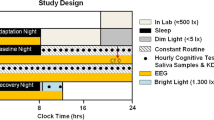Abstract
Although it has been known that brief nap after lunch could eliminate the sleepiness and improve intellectual concentration, the effect has not been evaluated quantitatively. In this study, an evaluation experiment was conducted in three days to investigate the effect of brief nap on intellectual concentration quantitatively. The first day was preparatory day to be accustomed experimental procedure and the cognitive task. The second and the third days were measurement with/without the brief nap, where the order was counterbalanced for each participant groups. The degree of intellectual concentration was measured by using the CTR (Concentration Time Ratio), and those of the second and third day were compared. During the experiment, the questionnaires for subjective fatigue, sleepiness, and motivation were performed, and CFF was also measured to verify their brain fatigue. As the result, it was confirmed that subjective sleepiness and fatigue was significantly reduced and improvement of CTR was marginally significant on the day with a brief nap.
Access this chapter
Tax calculation will be finalised at checkout
Purchases are for personal use only
Similar content being viewed by others
References
Lausten, J.: IEA information paper: energy efficiency requirements in building codes. In: Energy Efficiency Policies for New Buildings (2008)
Hayashi, M., Masuda, A., Hori, T.: The alerting effect of caffeine, bright light and face washing after a short daytime nap. Clin. Neurophysiol. 114, 2268–2278 (2003)
Miyagi, K., Kawano, S., Ishii, H., Shimoda, H.: Improvement and evaluation of intellectual productivity model based on work state transition. In: IEEE International Conference on Systems, Man, and Cybernetics, pp. 1491–1496 (2012)
Shimoda, H., Ooishi, K., Miyagi, K., Uchiyama, K., Ishii, H., Obayashi, F., Iwakawa, M.: An intellectual productivity evaluation tool based on work concentration. In: 15th International Conference on Human-Computer Interaction, vol. 16, pp. 364–372 (2013)
Ueda, K., Sugita, K., Shimoda, H., Ishii, H., Obayashi F., Taniguchi, K.: An experimental study on integrated thermal control of office room and break room to improve intellectual concentration. In: Roomvent & Ventilation Conference, pp. 31–36 (2018)
Ishii, H., Kanagawa, H., Shimamura, Y., Uchiyama, K., Miyagi, K.: Intellectual productivity under task ambient. Light. Res. Technol. 50, 237–252 (2016)
Ueda, K., Shimoda, H., Ishii, H., Obayashi, F., Taniguchi, K.: Development of new cognitive task to measure intellectual concentration affected by room environment. In: The Fifth International Conference on Human-Environment System ICHES 2016 Nagoya, Paper No. 201444 (2016)
Author information
Authors and Affiliations
Corresponding author
Editor information
Editors and Affiliations
Rights and permissions
Copyright information
© 2021 The Editor(s) (if applicable) and The Author(s), under exclusive license to Springer Nature Switzerland AG
About this paper
Cite this paper
Hamuddin, N.H. et al. (2021). An Experimental Study of Influence of Post Lunch Brief Nap on Intellectual Concentration. In: Ayaz, H., Asgher, U. (eds) Advances in Neuroergonomics and Cognitive Engineering. AHFE 2020. Advances in Intelligent Systems and Computing, vol 1201. Springer, Cham. https://doi.org/10.1007/978-3-030-51041-1_37
Download citation
DOI: https://doi.org/10.1007/978-3-030-51041-1_37
Published:
Publisher Name: Springer, Cham
Print ISBN: 978-3-030-51040-4
Online ISBN: 978-3-030-51041-1
eBook Packages: Intelligent Technologies and RoboticsIntelligent Technologies and Robotics (R0)





